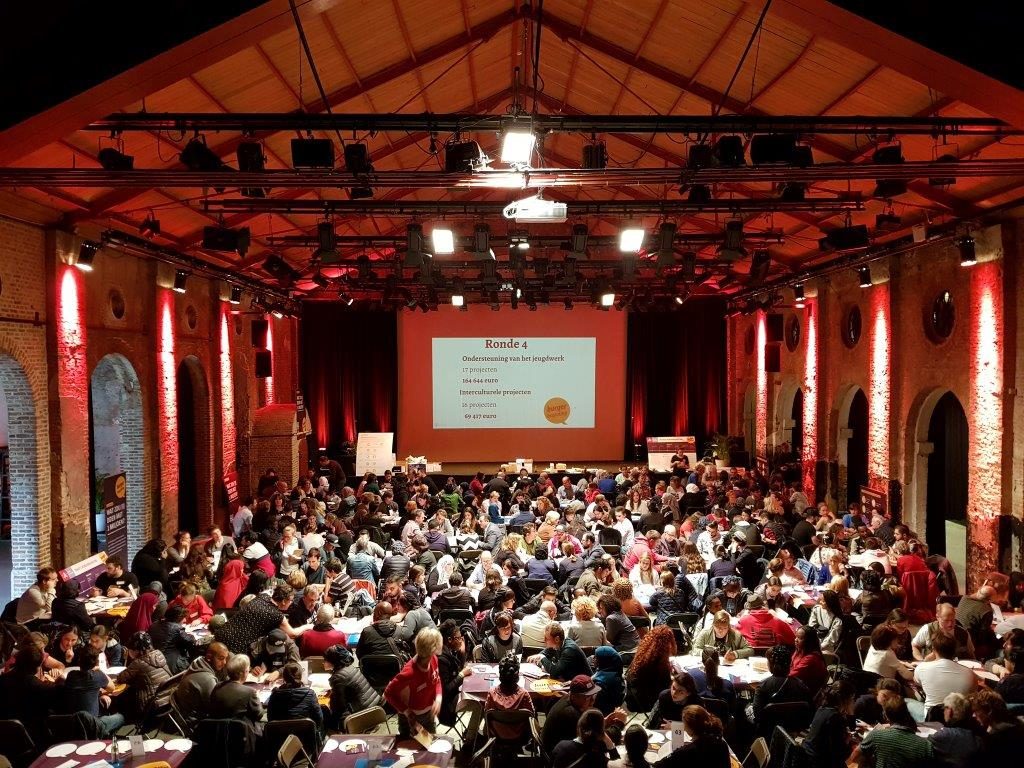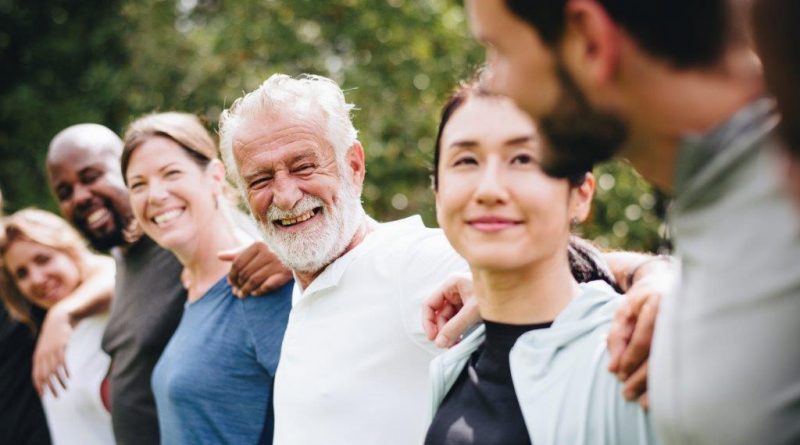What we can learn from citizen participation
What triggers people to enter into a dialogue? How do they achieve results together? What is the added value of collaboration? The imminent social elections – the height of democracy in the corporate world – present us with an excellent opportunity to explore the topic of participation in great depth. With the assistance of Professor Tine De Moor of the Utrecht University, we are looking for a broader perspective.
The rise of citizen collectives
One specific form of cooperation has been gaining traction quite rapidly: citizen collectives. These collectives enable citizens to join forces, take initiative and look for solutions to societal challenges which cannot be addressed by the government or the market. These challenges deal with a variety of areas, including food (e.g. pick-your-own farms and orchards), accommodation (e.g. co-housing projects), energy (e.g. renewable energy cooperatives), infrastructure (e.g. glass fibre cooperatives) and parks and public spaces management (e.g. neighbourhood parks).
Professor Tine De Moor and Oikos think tank investigated this phenomenon with the support of the King Baudouin Foundation. Their report “When citizens join forces and take matters into their own hands” not only makes mention of a renewal of local communities and civil society but also highlights an actual innovation. The researchers focused a lot of their attention on involvement and solidarity. “Collectives are a direct form of solidarity,” De Moor says. “They are called Schools for Democracy, but in fact they are Schools for Solidarity. The members simply have to listen to each other if they want to find a solution.”
Citizen collectives enable citizens to join forces so as to tackle societal challenges which cannot be addressed by the government or the market.
Critical notes …
In the Netherlands, citizen collectives have been around for quite some time. “The privatisation of healthcare has been going on for many years,” De Moor explains. “If the market does not see any opportunities in certain sparsely populated areas, the local population will take action, for example by organising childcare.” In Flanders, some families with disabled children work together to provide sheltered housing units. These efforts are laudable but not necessarily good news. After all, these facilities are only available to the wealthy and furthermore reduce demand, so that the government and the market are even less inclined to roll up their sleeves.
… but also opportunities.
In other words, a collective is not always a perfectly positive story, and social solidarity is not always evident either. De Moor refers to the trade unions, which came into existence as a result of solidarity, and points out that we sometimes fail to “see the solidarity mechanism when thinking about taxes, an indirect form of solidarity”. She nevertheless identifies economic opportunities – such as the pay-out of dividends within an energy cooperative – as well as ecological benefits. As a matter of fact, numerous cooperatives strive for a more sustainable way of life.
Buren van Bink (co-housing)

In Turnhout we have a successful practical example of a citizen collective. Fourteen families joined forces to come up with a special way of living together. The residential project is based on a number of principles, including:
• sustainable living
• living together with people of different ages
• being good neighbours for each other
• combining common areas and activities with attention to privacy
Leo Lauwerysen embarked on this residential project together with his partner when confronted with the care needs of his parents-in-law. “This made us realise that we will also develop care needs in the long term. Co-housing enables us to rely on an entire network.” It serves as a source of inspiration for Leo. “Although I have participated in meetings as an executive throughout my career, this project has helped refine my ideas about working together,” he says. “Respecting each other’s opinion, sharing confidence in each other’s talent, thinking in terms of equality rather than power, making efficient decisions together, paying attention to disputes … these principles should actually be put into practice even better.”
Within this scope, Leo and the other co-housers always make decisions in mutual consent based on objective criteria and arguments, and not on emotions. If a dispute arises, the people in question will get together to talk things out.
Example 2: the Participatory Budgeting project

In the district of Antwerp, residents have decided on the allocation of an annual budget of € 1. 4 million through participatory budgeting since 2014. It is truly unique that such a budget is set aside for participation. The citizens furthermore have full control over the process: they divide the budget across several topics of their choice, submit projects and ultimately choose the projects they want to carry out themselves or they want the district to carry out. This results in the realisation of approximately eighty projects every year, ranging from a community picnic organised by a youth movement to more green on a playground, an additional cycling path, an intercultural theatre or climate projects.
The central idea of the participatory budgeting project is that participation has a positive impact on policy and the decision-making process and that residents who look for solutions through dialogue can generate more added value for the district than top-down decisions. Antwerp residents have a greater say in their own district and have more confidence in the authorities. Active citizenship furthermore creates support for decisions and cultivates shared responsibility.
Active citizenship creates support for decisions and cultivates shared responsibility.
The participatory budgeting project pays a lot of attention to getting to know each other and entering into a dialogue, but there is an online alternative too: doemee.burgerbegroting.be. Votes cast online are given a lower weight than votes cast at physical meetings as the former are individual votes that are cast without any form of dialogue.

